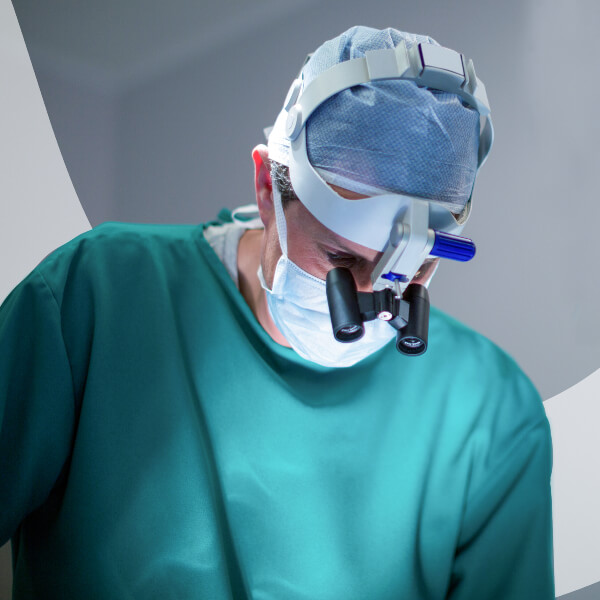What is a gastric sleeve leak?
After undergoing gastric sleeve surgery, one potential but serious complication is a gastric sleeve leak. This happens when a tear or hole forms in the stomach pouch created during surgery, causing stomach contents to leak into the abdominal cavity. It’s a critical condition that requires prompt medical attention. Though leaks are rare, it’s important to be aware of the symptoms, causes, and available treatments.
Why gastric sleeve leaks happen
Most gastric sleeve leaks are caused by issues that arise during or after the surgery. Several factors can lead to this complication, such as:
- Surgical mistakes: Sometimes, if the surgical technique is not flawless, it may result in weak spots that could develop into leaks.
- Pressure on the stomach: After surgery, if the stomach is overfilled, or the staples used to close the pouch aren’t properly placed, leaks can occur.
- Infections or poor healing: If the stomach’s lining doesn’t heal well after surgery, it might lead to a leak, or the tissue could get infected, causing complications.
Understanding these causes can help you grasp why leaks are a concern and how they might happen.
Symptoms of a gastric sleeve leak: What to watch for
Being able to recognize the signs of a leak early is crucial for getting timely medical care. The symptoms can vary, but common ones include:
- Abdominal pain: Persistent or severe pain in your stomach area is one of the key signs to look out for.
- Nausea and vomiting: These symptoms often indicate that something isn’t right in your digestive system.
- Fever: A fever, particularly in combination with other symptoms, could suggest an infection that stems from the leak.
- Breathing issues: Difficulty breathing might occur if fluid starts building up in the chest or abdomen due to the leak.
- Elevated heart rate: If your heart rate speeds up, it could be a sign of infection or even sepsis, which can be life-threatening.
Early warning signs you should never ignore
If you experience any of the symptoms listed above soon after your surgery, it’s critical that you seek help immediately. Don’t wait. Early detection and treatment are essential to prevent the leak from worsening and leading to more severe issues like peritonitis (infection of the abdominal cavity) or sepsis (a systemic infection). These are very serious conditions that can escalate quickly.
How to diagnose a gastric sleeve leak
To confirm if you have a gastric sleeve leak, doctors will typically recommend a few tests:
- Endoscopy: A small camera is inserted into your stomach to check for any holes or tears in the surgical area.
- X-rays: These can help detect the presence of air or fluid leaking out of the stomach.
- CT scan: This provides detailed images of your abdominal area to help pinpoint the leak’s location and severity.
If you notice symptoms of a leak, your doctor will likely suggest one or more of these procedures to confirm the diagnosis and determine the next steps.
How to treat a gastric sleeve leak: Medical intervention and options
The treatment for a gastric sleeve leak largely depends on the leak’s severity and how soon it’s detected. The main treatment options include:
- Antibiotics: If the leak causes an infection, your doctor may prescribe antibiotics to treat it.
- Intravenous nutrition: If the leak is serious and you can’t eat normally, you may need to get nutrition through an IV.
- Surgical repair: In more severe cases, surgery might be needed to fix the leak, particularly if it’s causing more damage or not healing on its own.
The quicker the leak is identified, the easier it is to manage and treat.
When should you contact a doctor?
You should always contact your doctor if you experience any of the symptoms mentioned, or if you feel something’s wrong after your surgery. It’s far better to err on the side of caution. Early intervention is key to preventing the condition from worsening and improving your chances of a full recovery.
Preventing gastric sleeve leaks: Post-op care tips
While leaks are rare, following proper post-operative care can minimize the risk significantly. Here are some tips to keep in mind:
- Follow your doctor’s post-surgery instructions carefully: This includes taking any prescribed medications, attending follow-up appointments, and sticking to your dietary guidelines.
- Avoid strenuous activities: Give your body the time it needs to heal. Don’t lift heavy objects or do any activities that could put pressure on your stomach.
- Watch for signs of infection: Keep your incisions clean and dry. If you notice any redness, swelling, or discharge, let your doctor know immediately.
- Stay hydrated: Especially in the early days after surgery, it’s crucial to stay hydrated since your diet may be limited.
What happens if a gastric sleeve leak goes untreated?
If a gastric sleeve leak goes untreated, it can lead to serious complications:
- Peritonitis: This is a life-threatening infection of the abdominal cavity that can develop quickly if the leak is not addressed.
- Sepsis: When an infection spreads throughout the body, causing widespread inflammation and potential organ failure, sepsis is a major concern.
- Shock: If the body cannot cope with the infection or fluid loss caused by the leak, shock can occur, which can be fatal if not treated promptly.
This is why early intervention is crucial to prevent these potentially life-threatening complications.
Living with the risk: Coping with post-surgery concerns
After your gastric sleeve surgery, it’s natural to feel some anxiety about potential complications. However, most patients recover smoothly with minimal issues. To reduce anxiety, stay informed, follow your doctor’s advice closely, and take good care of yourself during the recovery process. The risks are low if you stay proactive about your health.
FAQs about gastric sleeve leaks
Q: How common are gastric sleeve leaks?
A: Leaks are rare, affecting less than 1% of patients, but they can still occur and should be taken seriously.
Q: Can a leak develop years after surgery?
A: While most leaks happen in the first few weeks, they can occasionally develop even years after the procedure, especially if there’s a weakening of the stomach lining.
Q: How long does it take to recover from a leak repair?
A: Recovery time can vary, but most patients will need several weeks or even months to fully recover, depending on the severity of the leak and the treatment required.










